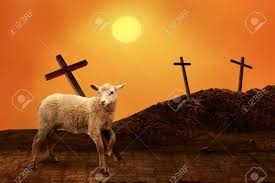As I have mentioned in this space before, I made my Cursillo weekend 11 years ago. For those who are not familiar with Cursillo, it stands for “Short Course” in Christianity. The program began in the 1940s in Spain as a way for those planning on walking pilgrimage on the Camino de Santiago to prepare for the experience. It then was shortened to three days and was adapted for Church communities. The weekend focuses on talks involving various aspects of Christian life, discussions of each talk in small groups, prayer sessions, music and adoration. My experience on my weekend was that I became refocused on Christ as the center of my life and the joy of sharing that realization with others. I can honestly say Cursillo changed my life.
The concern with any retreat-like encounter is that once the “mountain-top” experience has ended it is very possible for feelings to fade and for the individual to once again drift away from God as day to day life intervenes. For this reason, Cursillo encourages the formation of small “Fourth Day” groups which meet more or less weekly and are made up of anywhere from as little as 2 people to larger groups of 10 or 12. The goal is to meet regularly to share and encourage. Our group of three have been meeting since our weekend in 2012. A fourth member left the group when he entered seminary. We added another who made his weekend several years before the rest of us did.
The format for weekly groupings is to share our previous week’s experiences with the topics of Piety (Prayer life), Study (scripture or literature) and Action (what we had done during the prior week to put the Gospels into action). Now here is the dilemma with this format, that came to mind when reading the Gospel story of the Pharisee and the Tax Collector praying in the Temple. There is a danger I think we face when in small groups such as the Fourth Day Cursillo groupings. How do you share honestly what you have been up to for the previous week in the areas of Piety, Study and Action without sounding like the Pharisee in today’s Gospel? It can so easily become a “hey, look at what I did this week” session. Just as the Pharisee prays to God about how wonderful he is…unlike that sinful Tax Collector. Setting himself apart from others. Dividing into righteous and immoral groupings.

The cool thing about our group is that we have become close friends and we do not just focus on what “wonderful” things we have accomplished. We lean on each other for help when we fail and also support one another when aspects of our lives are not going well. Rather than patting ourselves on the backs, we try to lift each other up. We hope to keep square in the forefronts of our minds and hearts that we are all sinners. That we fall short and need the mercy of God, and the forgiveness of others, to keep moving forward on our faith journeys. Because as soon as you convince yourself that you are, in fact, the cat’s meow as they say, you have begun your fall back into the arms of the evil one.
And this is the story of the Pharisee. He has a check list of what he has done to put himself in good ‘stead with God.
‘O God, I thank you that I am not like the rest of humanity —
greedy, dishonest, adulterous — or even like this tax collector.
I fast twice a week, and I pay tithes on my whole income.’
You have a sense that his relationship with God had become mechanical and impersonal. Checking off the boxes. Sacrificial offerings of burnt lambs and cattle were done methodically without their hearts being behind them. In fact, often the sacrificial offerings were purchased from vendors at the temple and were sacrificed by the same vendors as part of the service.
And are we not also in danger of merely paying lip service with our own traditions and rituals. Do we pray the rosary with little intention, failing to ask for God’s grace and forgiveness. Or asking for God’s help for others. Do we receive Christ’s body and blood in a rote manner with little respect for the awesome mystery we get to participate in. Do we sacrifice our personal time to give of ourselves for others through our parish’s ministries.
The danger we must be aware of is that we begin to take for granted the incredible sacrifice Jesus made for each one of us. Because of Him giving Himself on the cross for us, we no longer have to raise sheep and cattle so as to “light one up” for God. We are asked instead, as Hosea tells us in the first reading, to:
For it is love that I desire, not sacrifice, and knowledge of God rather than burnt offerings
Love God by praying to Him for ourselves and others, stay close to Him by reading His word and partaking in the sacraments and take action by not being afraid to tell the world about what Christ has done for you. But if you insist on partaking in a burnt lamb, I suggest you go with the Rack over the Leg. Cooked medium rare with a side of horsey-sauce.
